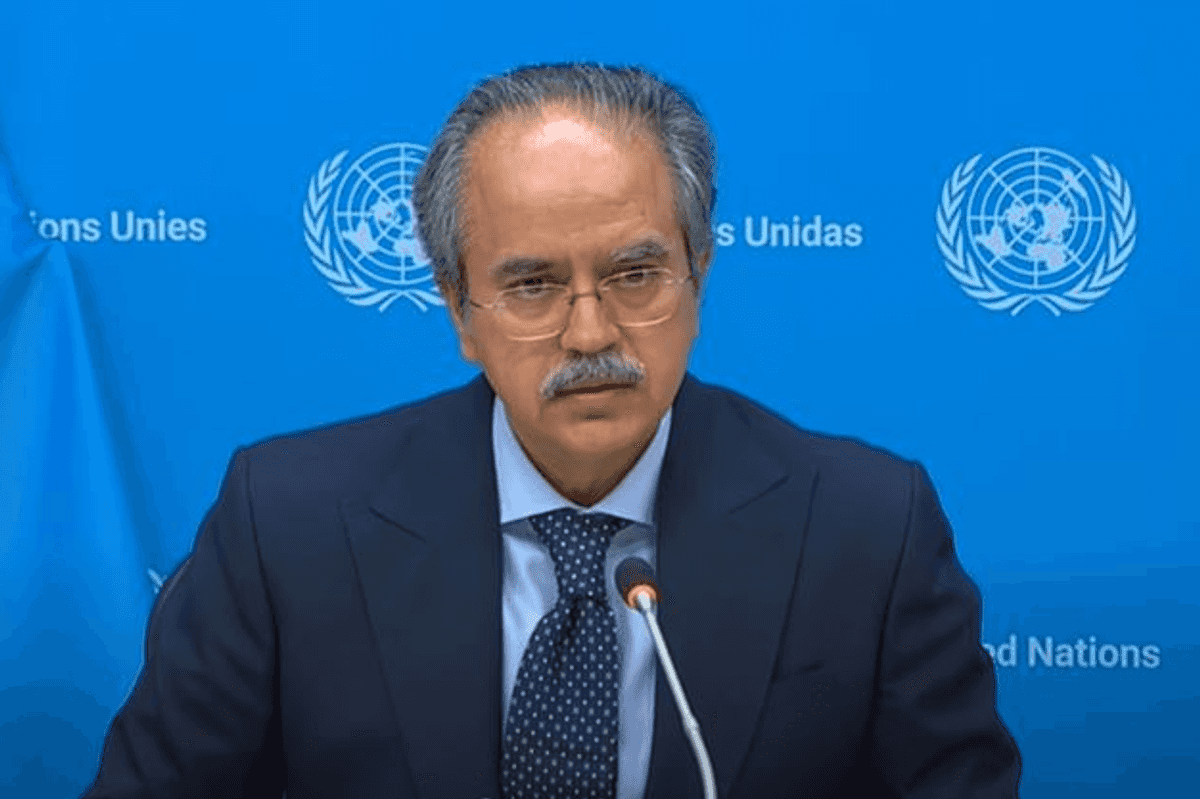At UNSC, Pakistan warns India’s actions after Kashmir attack risk 'catastrophic consequences'
Pakistan’s Permanent Representative to UN Ambassador Asim Iftikhar Ahmad says Islamabad doesn’t want war, but warns of serious consequences if India attacks

Asma Kundi
Producer, Islamabad
Asma Kundi is a multimedia broadcast journalist with an experience of almost 15 years. Served national and international media industry as reporter, producer and news editor.

Pakistan’s Permanent Representative to the UN Ambassador Asim Iftikhar Ahmad dismisses Indian accusations over the April 22 attack as 'baseless and politically motivated,' accusing New Delhi of using terrorism claims to justify repressive measures in Indian-administered Kashmir.
Courtesy: UN/YouTube
The United Nations Security Council held closed-door consultations Tuesday to address rapidly escalating tensions between India and Pakistan, following a deadly attack in Indian-administered Kashmir that left 26 tourists dead.
The meeting, requested by Pakistan and held under the agenda item “The India-Pakistan Question,” marked a rare UNSC intervention on the longstanding Kashmir dispute. Council members expressed deep concern over the security situation in South Asia and urged both nuclear-armed nations to exercise restraint and engage in dialogue.
The April 22 attack in Pahalgam, a popular tourist destination in Indian-administered Kashmir, triggered a fresh wave of hostility between the two countries. India blamed the assault on militants based in Pakistan — a charge Islamabad has vehemently denied.
Catastrophic consequences
Pakistan’s Permanent Representative to the UN, Ambassador Asim Iftikhar Ahmad, warned the Council that India's “aggressive military posturing” and recent unilateral actions, including an April 23 announcement to revoke previously negotiated border protocols, were pushing the region toward a dangerous confrontation.
“These developments could have catastrophic consequences,” Ahmad told the council, according to a statement from Pakistan’s Foreign Office. He emphasized that Pakistan does not seek escalation but is prepared to defend its sovereignty as per the UN Charter.
Several members reiterated the need to resolve the Kashmir dispute in accordance with past UN resolutions and the will of the Kashmiri people. Several countries also expressed concern over civilian casualties and the potential for broader military engagement.
Ahmad dismissed Indian accusations over the April 22 attack as “baseless and politically motivated,” accusing New Delhi of using terrorism claims to justify repressive measures in Indian-administered Kashmir and deflect attention from its human rights record.
Alarm on Indus Water Treaty
Pakistan also raised alarm over India’s recent suspension of the Indus Waters Treaty (IWT)— a key water-sharing agreement mediated by the World Bank in 1960. Islamabad warned the move could be viewed as an act of war if it disrupted Pakistan’s allocated water supplies.
The council was reportedly briefed on intelligence assessments indicating India may be preparing a military strike.
Pakistan reiterated its readiness to defend its sovereignty and territorial integrity, asserting its right to self-defense as outlined in the UN Charter. However, the country emphasized it does not seek an escalation of hostilities.
Escalating tensions
Both countries have taken retaliatory measures since the Pahalgam attack, including expelling diplomats, closing their land borders, and halting air traffic. Skirmishes have flared along the Line of Control (LoC), the de facto border dividing the Himalayan region.
Kashmir, claimed in full by both India and Pakistan but administered in parts, has been a flashpoint since partition in 1947. The two nations have fought three wars — two of them over Kashmir. India accuses Pakistan of harboring and supporting insurgents. Pakistan, in turn, says India is oppressing the region’s Muslim-majority population and denying their right to self-determination.
International reactions have been swift. The United States, China, Saudi Arabia, Turkey, Iran, the United Kingdom, and others have urged calm and encouraged renewed diplomacy.
UN Secretary-General António Guterres, through a spokesperson, offered to mediate and said the world “cannot afford another conflict in South Asia.”
Pakistan welcomed those offers and called for immediate Security Council engagement to prevent further escalation. “The threat of war is real,” said Ambassador Ahmad. “The time for action is now.”
- YouTubewww.youtube.com







Comments
See what people are discussing